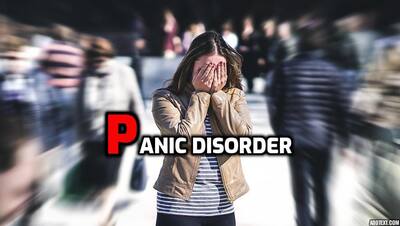Don’t Miss Out on the Latest Updates.
Subscribe to Our Newsletter Today!
Panic disorder: Psychotherapy can manage long-term effects of this condition

Some of the warning symptoms of health condition include - difficulty in breathing, sudden sweating or chills, unexplained and chronic chest pain, nausea, and dizziness.
The covid-19 pandemic has left many lives feeling stressed and getting affected by content panic attacks. When an individual experience recurring unexpected panic attacks, the health condition is called panic disorder.
Panic Disorder - Warning Symptoms Of This Condition
Some of the warning symptoms of health conditions include - difficulty in breathing, sudden sweating or chills, unexplained and chronic chest pain, nausea, and dizziness.
But did you know scientists have come up with a new study that has shown that psychotherapy can effectively treat the symptoms of this condition?
Also Read
Psychotherapy Can Effectively Reduce The Symptoms Of Panic Disorder
According to the study, psychotherapy appears to be beneficial in the long run for people suffering from panic disorder.
The findings, published in the journal Psychotherapy and Psychosomatics, indicated that 70 per cent of the patients clearly improved and 45 per cent were remitted two years after treatment.
Psychotherapy - What Is It? How Can It Lessen The Symptoms Of Panic Disorder?
Psychotherapy is a general term for treating mental health problems by talking with a psychiatrist, psychologist or other mental health providers.
"Many people adapt to their panic disorder by various restrictions in their daily living," said researcher Thomas Nilsson from Lund University in Sweden.
"Treatment is crucial as the disorder often leads to a downward spiral in which the margin for everyday life activities becomes increasingly narrow," Nilsson added.
For the study, the team included 221 participants and studied not only the short and long-term effects of therapy but also how treatment outcome was affected by offering the patients to choose their treatment.
The options were two forms of therapy, specifically designed to treat panic disorder -- psychodynamic psychotherapy (PDT) and cognitive behavioural therapy (CBT).
All About The Study
One-half of the patients were allowed to choose their form of therapy and the other half were randomly assigned to one or the other.
The researchers' hypothesis was that the patients offered a choice between two validated treatments would benefit from receiving their chosen form of therapy.
In previous research, this has been the case, and psychologists generally take patient preferences into account in treatment decisions. Therefore, the researchers were surprised by the result -- patients who had chosen PDT tended to have better outcomes than those who were randomly assigned to the same treatment.


